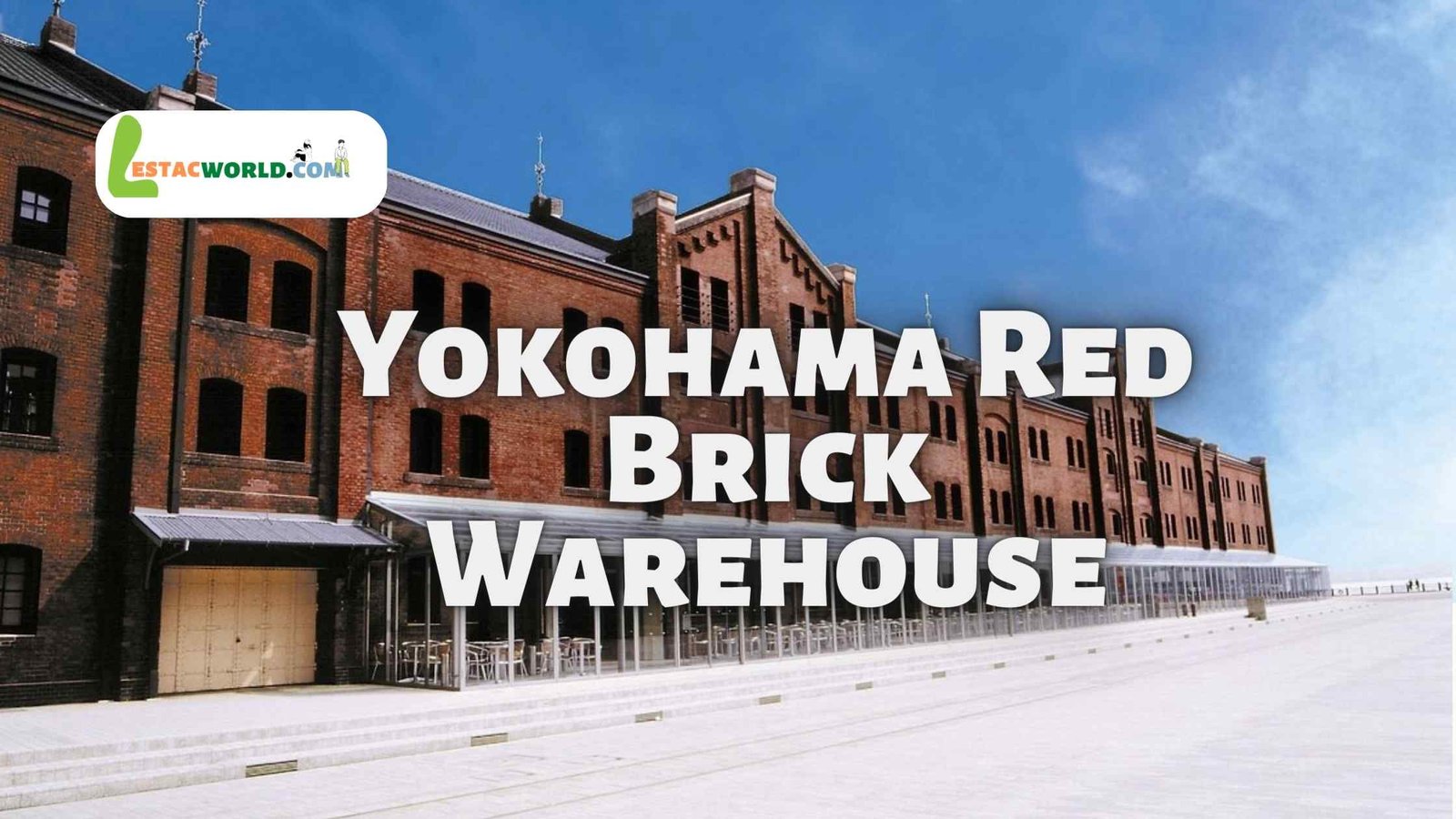About Yokohama Red Brick Warehouse
A historic group of structures known as the Yokohama Red Brick Warehouse can be found in the Japanese port city of Yokohama. Initially constructed in 1911, the warehouses served as places to store cargo that arrived at the port. Later, they underwent modernization and were put to a variety of uses, including serving as a hub for the Japan Tobacco and Salt Public Corporation’s distribution.
The warehouses were slated for removal as part of Yokohama’s waterfront redevelopment plan in the late 1980s. A public uproar, however, resulted in the warehouses being protected as a historic property, and in 1995, they were refurbished and made available to the public as event venues.
The Yokohama Red Brick Warehouse offers a distinctive blend of dining, shopping, and cultural events in a historical setting, making it a well-liked attraction for both tourists and locals today. Two brick structures in the complex are called “No. 1 Warehouse” and “No. 2 Warehouse,” and they host a range of stores, eateries, and cultural establishments. A number of other occasions and festivals, including as art exhibitions, musical performances, and food festivals, are also held at the complex throughout the year.
The Yokohama Red Brick Warehouse is situated in the Minato Mirai neighborhood of Yokohama, next to other well-known landmarks including the Yokohama Landmark Tower and the amusement park Yokohama Cosmo World.
History timeline of Yokohama Red Brick Warehouse
Here is a brief history timeline of Yokohama Red Brick Warehouse:
- 1911: The first of two red brick warehouses is completed in Yokohama. The warehouses were built to serve as storage facilities for goods arriving at the port of Yokohama.
- 1923: The warehouses are severely damaged in the Great Kanto Earthquake.
- 1930: The warehouses are rebuilt and modernized to meet the changing needs of the port.
- 1989: The warehouses are closed and slated for demolition as part of the city’s waterfront redevelopment plan.
- 1992: After much public outcry, the warehouses are saved from demolition and designated as a historic site.
- 1995: The first of the two warehouses is renovated and opened to the public as the “Yokohama Red Brick Warehouse No. 1” event space. The second warehouse is also renovated and opened to the public a few years later.
- 2002: The warehouses are designated as one of Yokohama’s “100 Landscapes of Japan.”
- 2013: The warehouses are renovated again, this time to house a variety of shops, restaurants, and cultural facilities, and are renamed “Yokohama Red Brick Warehouse.”
Today, the Yokohama Red Brick Warehouse is a popular destination for tourists and locals alike, offering a unique mix of shopping, dining, and cultural activities in a historic setting.
How to reach Yokohama Red Brick Warehouse
The Yokohama Red Brick Warehouse is located in the Minato Mirai district of Yokohama, which is easily accessible by public transportation. Here are some ways to get there:
- Red Brick Warehouse By train: Take the Minato Mirai Line to the Bashamichi or Nihon-odori Station, or take the JR Negishi Line to the Kannai Station. From any of these stations, the warehouses are about a 10-15 minute walk away.
- Red Brick Warehouse By bus: Take the Yokohama City Bus to the Akarenga-mae or Bashamichi bus stop. The warehouses are a short walk from either of these stops.
- Red Brick Warehouse By car: There is a paid parking lot near the warehouses, but space is limited. It is recommended to use public transportation whenever possible.
Once you arrive at the Yokohama Red Brick Warehouse, you can explore the two buildings and the surrounding area on foot. The warehouses are situated along the waterfront, with views of the harbor and the iconic Yokohama Bay Bridge.
Do's and Dont's at Yokohama Red Brick Warehouse
Here are some general do’s and don’ts to keep in mind when visiting the Yokohama Red Brick Warehouse:
Do’s:
- Do take your time to explore the two historic brick buildings and the surrounding area.
- Do try some of the local food and drinks at the many restaurants and cafes in the complex.
- Do visit the shops and boutiques for souvenirs or unique gifts.
- Do take in the view of the harbor and Yokohama Bay Bridge from the waterfront promenade.
- Do take advantage of any events or festivals that may be taking place at the complex during your visit.
Don’ts:
- Don’t litter or smoke in prohibited areas. There are designated smoking areas available.
- Don’t touch or damage any of the historic structures or exhibits in the complex.
- Don’t bring pets or animals into the buildings or on the premises, unless they are service animals.
- Don’t enter prohibited or off-limits areas.
- Don’t engage in any disruptive or inappropriate behavior that may disturb other visitors or businesses in the complex.
Following these guidelines will ensure a safe and enjoyable experience for you and other visitors at the Yokohama Red Brick Warehouse.
Highlights of Yokohama Red Brick Warehouse
The Yokohama Red Brick Warehouse is a popular destination for tourists and locals alike, offering a unique mix of shopping, dining, and cultural activities in a historic setting. Here are some of the highlights:
- Historic architecture: The Yokohama Red Brick Warehouse consists of two historic brick buildings that were originally built in 1911. They have been renovated and preserved, giving visitors a glimpse into Yokohama’s industrial past.
- Shopping: The complex is home to a variety of shops and boutiques selling a range of products, from Japanese crafts to international fashion brands. Many of the shops feature unique and one-of-a-kind items that are perfect for souvenirs or gifts.
- Dining: The Yokohama Red Brick Warehouse is a food lover’s paradise, with a wide range of restaurants, cafes, and bars to choose from. Visitors can sample everything from traditional Japanese cuisine to international dishes, all while enjoying the historic setting.
- Events and festivals: The complex hosts a variety of events and festivals throughout the year, including art exhibitions, music performances, and food festivals. These events offer visitors a chance to experience Yokohama’s vibrant culture and community.
- Waterfront location: The warehouses are situated along the waterfront, with views of the harbor and the iconic Yokohama Bay Bridge. Visitors can take a leisurely stroll along the promenade or enjoy a boat ride to see the sights from the water.
Overall, the Yokohama Red Brick Warehouse is a must-visit destination for anyone interested in history, culture, food, and shopping. It offers a unique blend of old and new, with a focus on community and local creativity.
Reviews of Yokohama Red Brick Warehouse by Tourists ?
The Yokohama Red Brick Warehouse is a popular destination for tourists visiting Japan, and it has received many positive reviews. Here are a few examples:
- “The Yokohama Red Brick Warehouse is a great place to spend an afternoon. The buildings are beautiful and historic, and there are so many shops and restaurants to explore. The view of the harbor is stunning, especially at night.” – Sarah, USA
- “I loved the atmosphere of the Yokohama Red Brick Warehouse. It’s such a unique place, with a mix of traditional and modern elements. The food was amazing, and the shops had some really interesting and unique items. I would definitely recommend a visit!” – Tom, UK
- “The Yokohama Red Brick Warehouse is a perfect spot for a date or a family outing. There’s something for everyone, from the shopping to the dining to the events. The buildings are so photogenic, and the view of the harbor is amazing. I can’t wait to go back!” – Kaori, Japan
- “I was so impressed with the Yokohama Red Brick Warehouse. It’s so well-preserved, and you really get a sense of the history and culture of the area. I loved the variety of shops and restaurants, and the events calendar was full of interesting things to see and do. Definitely a highlight of my trip to Japan!” – Michael, Canada
Overall, visitors to the Yokohama Red Brick Warehouse are impressed with the beauty, history, and variety of the complex. Many appreciate the unique blend of old and new, and the focus on local creativity and community.








Comment (0)